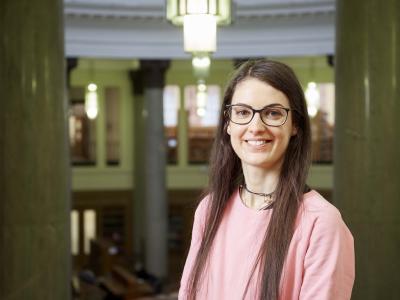
An IASH Work-in-Progress seminar, delivered by Dr Marika Ceschia (RACE.ED Archival Fellow, 2023-24)
Decolonizing the Grammars of Nineteenth-Century Nature Writing
A growing number of scholars in the environmental humanities are emphasizing the urgent need to rethink our relationship with nature, framing this as a narrative and linguistic process: Lawrence Buell, Isabel Pérez-Ramos, Matthew Schneider-Mayerson, Marco Armiero, David Pellow, Stefania Barca, and others have stressed the need for an alternative language, an ‘ecotopian lexicon,’ ‘new’ or ‘counter-narratives.’ However, Hortense Spillers’s and Sylvia Wynter’s analyses of the dominant onto-epistemic order suggest that the key issue lies deeper, within the norms that guide and structure the meaning-making process. While recovering alternative ecological narratives remains paramount, in order to perform other modes of reading and living we need to rethink the grammars that underlie narratives.
In this talk I theorize an interdisciplinary methodology grounded in Black feminism to decolonize the dominant grammars, or symbolic orders, that inform hegemonic Euro-American modes of nature writing. Rereading the white patriarchal canon of nature writing with and against Black women’s works I probe the extent to which its dominant grammars enforce what Sylvia Wynter has called a ‘semantic closure’ that renders narratives readable only within Euro-American individualistic and utilitarian frameworks. Taking my cue from Toni Morrison’s Playing in the Dark and its exploration of how constructions of Blackness shape the Euro-American literary canon, I critically examine the extent to which the racial schemas embedded in language mould and limit the environmental imagination. I then demonstrate how Black women’s maternal grammars perform alternative modes of reading nature that unsettle these dynamics.
Please join in-person, or click the link below to join the webinar:
https://ed-ac-uk.zoom.us/j/81857401179
Passcode: 6aSe7GF7
